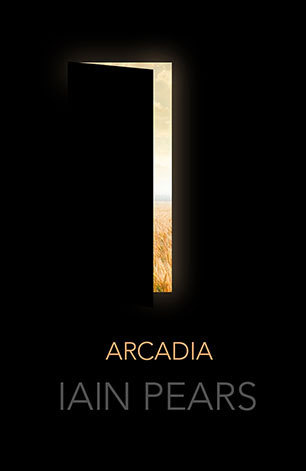Paul Kincaid's From the Other Side, September 2015: Patrick Ness, Ian McDonald, Stephen Baxter, Margaret Atwood, and (of course) Adam Roberts
← The Exploding Spaceship Reviews A Red-Rose Chain and its Book Launch at Borderlands!Issue #10 is out! →
Paul Kincaid's From the Other Side, September 2015: Patrick Ness, Ian McDonald, Stephen Baxter, Margaret Atwood, and (of course) Adam Roberts
Posted on 2015-10-02 at 03:57 by montsamu
From the Other Side, September 2015 By Paul Kincaid
[Editor’s Note: From the Other Side is Paul Kincaid’s monthly column on books and news from the other side of the Atlantic.]
People who have lost just about everything they own are fleeing the war in Syria and risking their lives to cross into Europe, where they are met by governments covering their eyes and ears and trying to pretend that nothing terrible is happening. Then the picture of a dead boy and public opinion finally forces the government to act, agreeing very, very reluctantly to take the absolute minimum of refugees, with the strict proviso that the moment they turn 18 they will be deported back to where they came from. It is getting harder and harder to admit that this is my government, though they are certainly not acting in my name.
Fortunately, there are individuals with more compassion and humanity than the entire British government put together. At the forefront of these is Patrick Ness, who started to raise funds for Save the Children by announcing that if £10,000 could be collected, he match the amount with his own money. In less than a week, and with a handful of other authors making a similar commitment, he had raised the equivalent of over a million dollars. The last I saw, the amount raised was over £600,000, which rather puts the feeble government response to shame.


So it is only appropriate to begin this month with The Rest of Us Just Live Here (Walker) by Patrick Ness. It’s typical of the work that has already won him a shelfful of awards: sharp, sly and funny. In this instance it concerns Mikey, who is 17 and full of the typical concerns of anyone on the verge of adulthood, except that in this world there are also gods and vampires and soul-eating ghosts and zombie deer. But all the epic stuff takes place in the margins, as it were, while centre stage is occupied by people just trying to live a normal life in an abnormal world.
The big science fiction novel of the month is, of course, Luna: New Moon (Gollancz) by Ian McDonald. This is the first of two novels (volume two is due next summer) concerning five corporate families involved in a struggle for dominance on the Moon where there are all too many ways for someone to die. Even before the book was published, plans were announced to turn it into a television series, so this really looks as if it is going to be McDonald’s biggie.


Another major sf title this month is Xeelee Endurance (Gollancz) by Stephen Baxter, a new collection of 11 stories and novellas, some previously unpublished, set in the universe of the ongoing conflict between humans and the unknowable Xeelee that Baxter has been chronicling off and on throughout his career.
The curious thing about September, however, is that it seems to have been a month for sf by non-genre writers. Trivially, for instance, this is true of The Blue Guitar (Viking) by former Booker Prize winner, John Banville. Banville’s last-but-one novel, The Infinities, was set in an alternate Ireland where, among other things, cold fusion had been achieved as a result of something called the Godley Theorem, and a passing reference to the Godley Theorem in the new novel suggests that this is set in the same alternate Ireland. Though to be honest, the setting hardly impinges on the familiar Banvillesque story of a man running away from something he has done wrong and looking back on all the failures in his life.


More significant is Arcadia (Faber) by Iain Pears. Pears has written a number of superb historical novels that play complex games with time and structure, the most successful of which was probably An Instance of the Fingerpost, now he has moved into the future, or at least a version of the future. It’s about artificial realities or parallel worlds with a land of storytellers, prophecies and ritual called Anterworld which may or may not be real, and a scientist trying to prove that time does not exist. Arcadia was originally planned as an interactive narrative for digital devices, and a version for Apple devices (but not for Android) has been released to coincide with the book. This apparently contains material not included in the book, and allows you to structure the story from the perspective of any one of the characters.
Then, of course, there’s The Heart Goes Last (Bloomsbury) by Margaret Atwood, though I’m not sure that she can legitimately be called a non-genre author any more, given how much science fiction she has written in recent years. As with the Iain Pears, this was originally written for another medium, as an ebook serial, and most of the reviews have noted that, as a result, it seems episodic to the point of being incoherent. It starts in a dystopian future in which the central couple are employed by a private prison to spend one month as inmates and one month as guards, turn and turn about, but from that beginning Atwood piles absurdity upon absurdity with animated sex dolls and Elvis impersonators and a talking head in a box.


Oh, and before I forget, there’s also a new book from Adam Roberts. Rave and Let Die the SF and Fantasy of 2014 (Steel Quill) is a new collection of reviews, though this time they didn’t have the good taste to invite me to write the introduction. This is, one must remember, only the second book Roberts has produced this year; he must be slipping.
British sf critic Paul Kincaid is the author of the Hugo Award-nominated What It Is We Do When We Read Science Fiction and the BSFA Awards 2014-nominated Call And Response. He has won both the Thomas D. Clareson Award and the BSFA Non-Fiction Award.
[caption id=“attachment_2984” align=“alignnone” width=“300”] photo credit: Maureen Kincaid Speller[/caption]
photo credit: Maureen Kincaid Speller[/caption]
